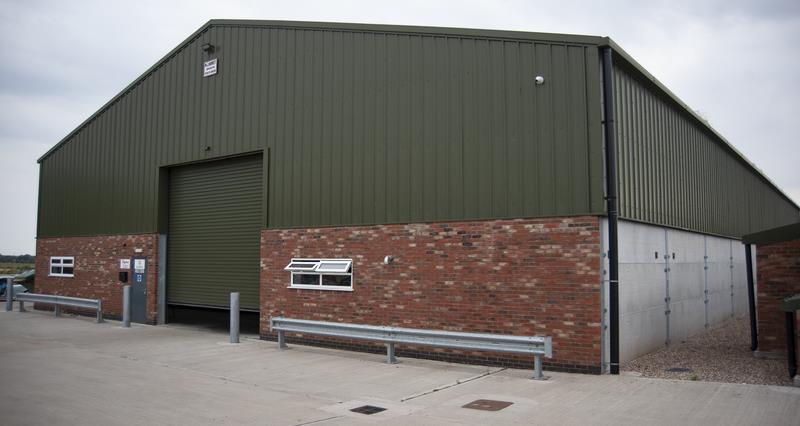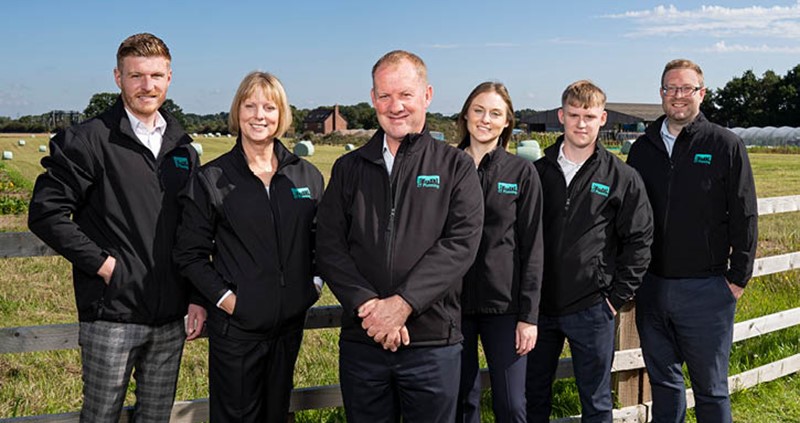The open consultation titled 'Consultation on additional flexibilities to support housing delivery, the agricultural sector, businesses, high streets and open prisons; and a call for evidence on nature-based solutions, farm efficiency projects and diversification' from the DLUHC (Department for Levelling Up, Housing and Communities) was published 24 July 2023 and will run to 25 September 2023, although members views will need to be submitted by the 31 August to form part of the NFU's response. As suggested by the title the consultation document proposes potential changes to permitted development rights to allow for additional flexibility.
Recently, events including the publication of the government's 'Unleashing rural opportunity' policy paper and the popularity of the television show 'Clarkson's Farm' have highlighted how issues in the planning system are acting as a barrier to rural economic growth.
The proposed rethinking of Class Q
Part 6 is a commonly used permitted development right that allows for the change of use of a barn or agricultural building to residential. Currently this right is restricted dependent upon the presence of land designations, however, proposed changes may mean that this form of permitted development is available to more areas than ever.
It is proposed that Class Q will become applicable to Article 2(3) land excluding World Heritage Sites given that their status is dictated by UNESCO. Nevertheless, this would mean that this would be a viable option for those situated within a National Park or the Broads as well as an AONB and Conservation Area. This is a promising recommendation acting as an auspicious signal that the government do recognise that, despite the obvious natural beauty of these areas, they must be developed or else there is a grave risk that these areas will be left behind and only used seasonally as tourist facilities.
Furthermore, there is also a suggestion that Class Q may also be applied to buildings on agricultural units that may not be in solely agricultural use. Additionally, it is also suggested that the right should also be applied to former agricultural buildings no longer part of a functioning agricultural unit.
In an attempt to ‘retain the focus on providing smaller homes for rural workers and local people’ changes to limitations surrounding floor-space have been released for consultation:
- The single maximum floorspace for a single dwelling is proposed to be reduced form 465 square metres to 100 – 150 square metres
- The maximum number of homes that is eligible to be created as part of a Class Q development is proposed to be increased from 5 to 10
- It is also proposed that there for a building to qualify as being eligible for a Class Q conversion it must be a minimum of 37 square metres
This is a radical change in tact from the government and perhaps an indication of the value they are beginning to place on food production and security, with these changes seeming to suit the needs of the agricultural sector and worker far more than those people looking to escape the city and move to a big house in the countryside.
The government are also proposing that rear extensions may be a possibility as part of a Class Q conversion providing it is situated on previously developed land (covered by a hard service prior to 24 July 2023) and the extension is single storey with a max depth of 4 metres.
However, despite the positive nature of these proposed changes there is one suggestion that does appear problematic. It is suggested that there will be a requirement that for a building to be eligible for conversion under Class Q it must have an existing access to a public highway, something that is not common for a significant proportion of agricultural buildings.
Looking for more planning advice?
Proposed changes to Class R offer fresh opportunities for rural diversification.
Currently Class R relates to the change of use from agricultural to flexible commercial use. However, it is proposed that this will change, redefining the right.
Rather than Class R just relating to agricultural buildings, it is proposed that this is opened to include any building within a ‘rural use’ such as forestry and equine. Furthermore, there are also proposals to redefine what is meant by ‘flexible commercial use’ and expand this to also include outdoor sports, recreation, or fitness, as well as general industrial uses which favour processing of raw goods produced on site and to be sold on site (excluding livestock) to support the continued growth of farm shops. This will continue to be subject to prior approval.
On balance
At first glance, the proposals outlined within the document do seem promising for the future of the rural economy and agriculture as an independent economic sector. However, it is important to note that the document is subject to change dependent upon consultation responses. Nothing is guaranteed until it is approved and published within the General Permitted Development Order.
Nevertheless, on the whole there is reason for optimism. The contents of this document are a direct acknowledgment from the government that the rural economy is important, and that changes to the current rules to make agricultural development more flexible for farmers so they can diversify to be more productive, should form an integral part of this economic sector.
Have your say on the consultation


